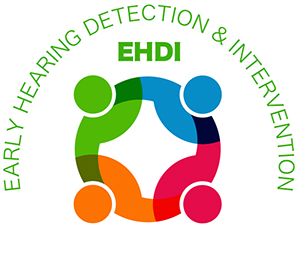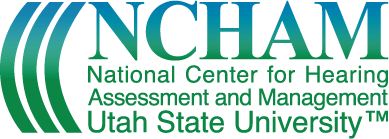Webinar: Intermediate Hearing Screening Webinar: Building on Your Experience with Evidence-based Hearing Screening Practices for Children Birth to Three Years of Age
When: August 27th, 2024 | 12:00 pm - 1:30 pm MDT
Webinar Description:
Whether you are using Otoacoustic Emissions (OAE) hearing screening or Pure Tone Audiometry to identify children with hearing loss in early childhood programs, it is common to have questions about the process.
Join this webinar for an opportunity to review key points and address questions that may arise during your screening experiences. A Q&A session will focus on improving the quality of hearing screening and evaluation practices for children ages birth to 5. Learn about useful screening and follow-up techniques and access practical tools to support the implementation of high-quality hearing screening and follow-up methods in Head Start, Early Head Start, and other early care and education programs.
Topics for this introductory webinar include:
- Techniques and strategies for managing children’s behavior leading to the successful completion of hearing screenings
- Equipment management scenarios that may arise when conducting hearing screenings
- The recommended follow-up protocol for when children do not pass the hearing screening
- Strategies for communicating hearing screening results with family members and professionals with the goal of achieving appropriate following actions
- Resources to support the development and sustainability of evidence-based hearing screening and follow-up practices, including ongoing training and technical assistance needs and resources
- Questions related to OAE or Pure Tone Audiometry screening and follow-up practices
Target Audience:
This webinar benefits individuals and programs serving children between birth and 5 years of age who already have some experience implementing either OAE or Pure Tone Audiometry hearing screening, including:
- Head Start, Early Head Start, Migrant and Seasonal Head Start, and American Indian and Alaska Native Head Start programs
- Part C early intervention programs
- Part B-619 programs
- Home visiting programs
- Preschool staff
- School Nurses
- Speech-Language Pathologists
- Health care providers
Presenters:
William Eiserman, Ph.D. is the Associate Director of the National Center for Hearing Assessment and Management at Utah State University and is co-director of the Early Hearing Detection and Intervention - National Technical Resource Center. Dr. Eiserman has over 25 years of experience developing and leading the Early Childhood Hearing Outreach (ECHO) Initiative which focuses on implementing evidence-based hearing screening and follow-up practices for young children with a primary focus on Early Head Start and Head Start and other community-based settings. Along with his ECHO Initiative colleagues, Dr. Eiserman has provided training and technical assistance to thousands of programs across the country and in international settings which have demonstrated the efficacy of early identification of hearing loss in pediatric populations.
Terry Foust, AuD, CCC-A/SLP is a pediatric audiologist and speech language pathologist who has been a key member of the ECHO Initiative team since its beginnings in 2001. Dr. Foust has provided intensive training and technical assistance to staff in early childhood programs in nearly every state, including Head Start, early intervention programs and community health centers. Dr. Foust has also provided technical assistance in a variety of international settings including in India, Ghana, Georgia and Kenya.
Note: If you have not yet had experience implementing evidence-based hearing screening, please join us for our Introductory Webinar on August 28.
This webinar will be recorded and posted for later access. If you are unavailable at the time this webinar is being offered, please register anyway so that after the webinar, we can email you the link to the video recording for you to review at your convenience.
Contact us for more information.
Related Resources: Explore related resources on the Early Childhood Learning and Knowledge Center (ECLKC) to learn more.
Stay Connected: Join MyPeers to connect with Head Start and early childhood colleagues around the country on this and other topics. The Health, Safety, and Wellness community currently has more than 1,000 members who are networking, sharing, and learning from each other. Find it under "All Communities" and select the blue "Join" button.
Please share this message with colleagues who may be interested in this topic.
Did someone forward you this invitation? Subscribe to stay up to date!


